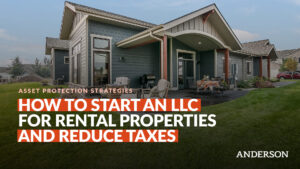Updated October 9, 2021
Most media attention regarding real estate investing focuses on the residential side – house flipping and what-not. However, commercial property can be just as lucrative, if not more so, for the savvy investor. Let’s take a moment then to look into commercial real estate investing, and the associated benefits.
Commercial Property Examples
Commercial property is usually referred to as either specific buildings or land that is intended to be profit generating. It can also apply to residential properties that contain five or more units. However, for the most part, the term ‘commercial property’ normally includes:
- Office buildings
- Retail buildings
- Warehouses
- Industrial buildings
- Mixed use buildings
Each type has its distinct characteristics regarding management and usage. However, they all fall under the general umbrella of ‘commercial,’ rather than ‘residential.’ All of them are used to generate or indirectly help generate income for businesses.
Upsides of Putting Your Money into Commercial Investing
Here is a handful of reasons why commercial real estate investing isn’t a bad idea for your overall portfolio:
Income Earning Potential – The first, and best, reason to put capital into commercial real estate investing, versus only residential, is the income potential. On average, commercial property has a usual annual return off of the purchase price between 6 to 12 percent. Single-family rentals, to provide contrast, generally generate a 1 to 4 percent return at best. One factor that can help secure such profits are higher lease payments per square foot than is typically seen for residential or single-family apartments.
Increased Tenant Property Maintenance – Commercial tenants, such as retailers, normally have a vested interested in helping maintain the property by keeping their storefront and space itself, clean and orderly. If they don’t take such precautions, they realize that potential customers will go to the competition for their goods and services instead. In that regard, both owners and tenants’ interests are in alignment, which in turn, helps the investor maintain and improve the property’s quality which will increase its overall value long-term.
Fixed Hours of Operation – Businesses, and retailers usually operate during standard hours of operation, meaning that while you’re working so are they. As simple as this sounds, it means that outside of any emergency calls regarding break-ins or fire alarms, you don’t need to worry about tenants calling at all hours of the day and night to request repairs or replacing lost keys. Furthermore, because the investment is commercial in nature, an alarm monitoring company will more than likely be handling those emergency calls and routing them to the relevant authorities.
Objective Price Evaluation – As an investor looking for a commercial property, it is easier to evaluate a potential investment versus a residential real estate opportunity. When looking at a commercial space, it is easy enough to request the owner’s current income statement and determine a fair price from there. Furthermore, commercial sellers tend to be a bit more flexible regarding negotiation versus a regular home owner. Sellers understand that this is purely a business transaction and that there are typically fewer investors when compared to residential ones. As such, if you’re looking to get into the commercial arena, there should be fewer emotions to worry about overall.
Expenses Covered by Tenants – In many, but not necessarily all, commercial properties, tenants end up paying all of the property’s operating expenses. This condition is common in triple net leases, which are a common occurrence in commercial real estate. The basic concept of a triple net lease is that you the property owner do not have to pay any associated expenses on it. The tenants agree, as a part of their contract, to directly handle property costs including taxes. The only expense you should be responsible for as owner is the mortgage.
Very often, larger name companies and brands, like Starbucks, for instance, will enter into this kind of lease because it allows them the room to maintain an overall look and design aligned with their brand. In return for redesigning the space as they see fit without interference, they’ll help cover the property’s costs. As a result, you are left with a low maintenance income generator that should provide little worry and generate equity by handling costs for you. However, triple net leases often do not occur with smaller businesses, say in strip malls for instance.
Commercial Property Downsides to Know
As with any investment, besides the obvious rewards, there are risks too. Fortunately, commercial real estate investing downsides aren’t too overwhelming to deal with if you plan accordingly:
Time and Attention Commitment – Being an absentee landlord won’t work in commercial real estate; there are more variables to keep an eye on than in the residential game. You will more than likely deal with a variety of leases, depending on the tenants’ renting space, annual adjustments in maintenance costs, public safety regulations, etc. Commercial properties require more oversight but again, the potential rewards are higher than in residential.
Professional Help and Management is Necessary – If you are a DIY residential investor, then commercial real estate management is going to be an adjustment. For example, you better have licenses in order before even trying to handle serious maintenance issues on your property. What’s more likely is you will need to hire additional qualified people to handle repairs, emergencies, and other maintenance projects.
The added cost isn’t fun to handle, but you’ll have to include it in your ongoing operating expenses that need payment. Remember when looking at a potential property to invest in to keep these management costs in mind, if you’re not already used to them. If you want to hire a good property management company to handle all the headaches for you, then expect to pay them somewhere between 5 to 10 percent of your rent revenue.
Substantial Upfront Investment – Perhaps the biggest initial barrier to overcome in commercial real estate investing is the significant upfront capital requirement. Expect heavy duty expenditures when it comes to maintenance, since you are dealing with more customers than a residential investment. As a result, more facilities will need maintenance, commercial quality equipment will always need repairs or replacement, in general, the bill levels are going to be higher than you’re accustomed to in commercial. Again, though, remember that the potential gains in revenue will hopefully outweigh the costs.
Understand that if you’re new to commercial real estate investing or considering getting into it, this information is merely the tip of the iceberg. Another variable to consider is how do these investments fall in line with your other assets? Moreover, do you have legal entities in place that can handle businesses dealing with these kinds of investments? Let’s say for instance you are looking at a large commercial property and want to bring in additional investors for raising capital? If they become business partners, what happens if one or more of them end up with liability suits or other debt collectors looking to get paid?
Does that mean that your assets could be at risk? It depends on how your business is structured. Don’t take that chance; remember that you are in this business to make money, not pay someone else who hasn’t lifted a finger to earn it. Make sure your assets and income are thoroughly protected first. Contact us today for a free 30-minute strategy session to go over your business and make sure that if you are getting into commercial real estate, you’re doing so with all bases covered first.
Bonus Video
Free Strategy Session with an Anderson Advisor
Receive a detailed risk assessment to assist in lowering problem areas that could wipe out all of your assets with one wrong move. Speak with an Anderson Professional Advisor to get your FREE Strategy Session. Limited-Time offer: FREE (a $750 value.)















